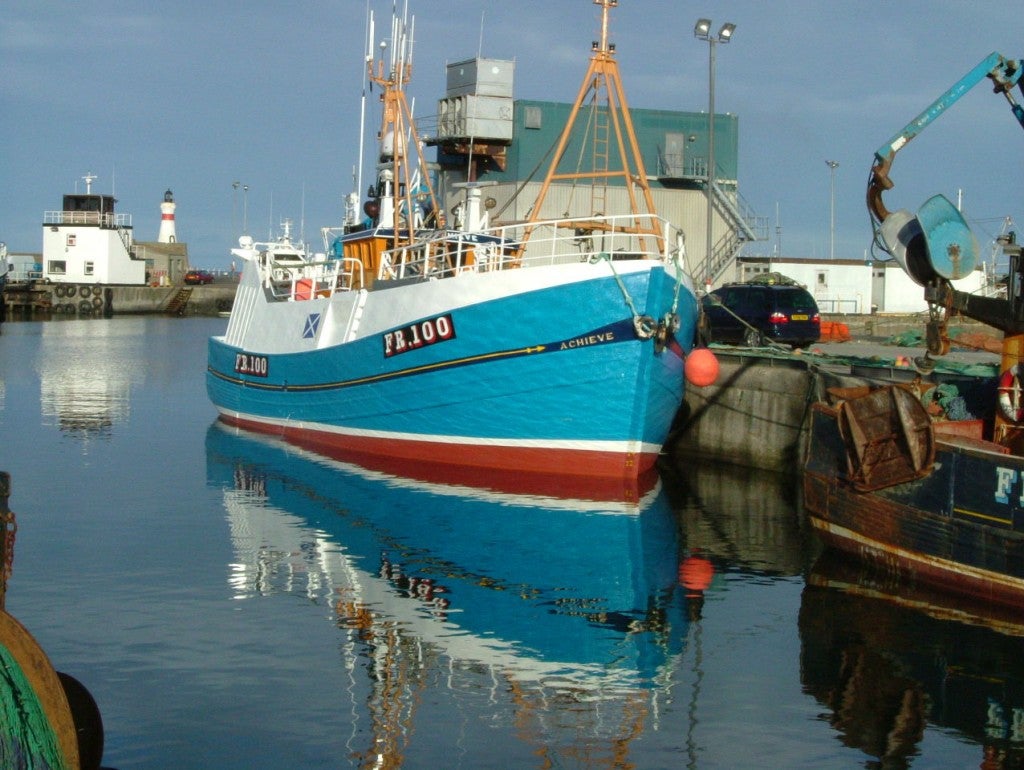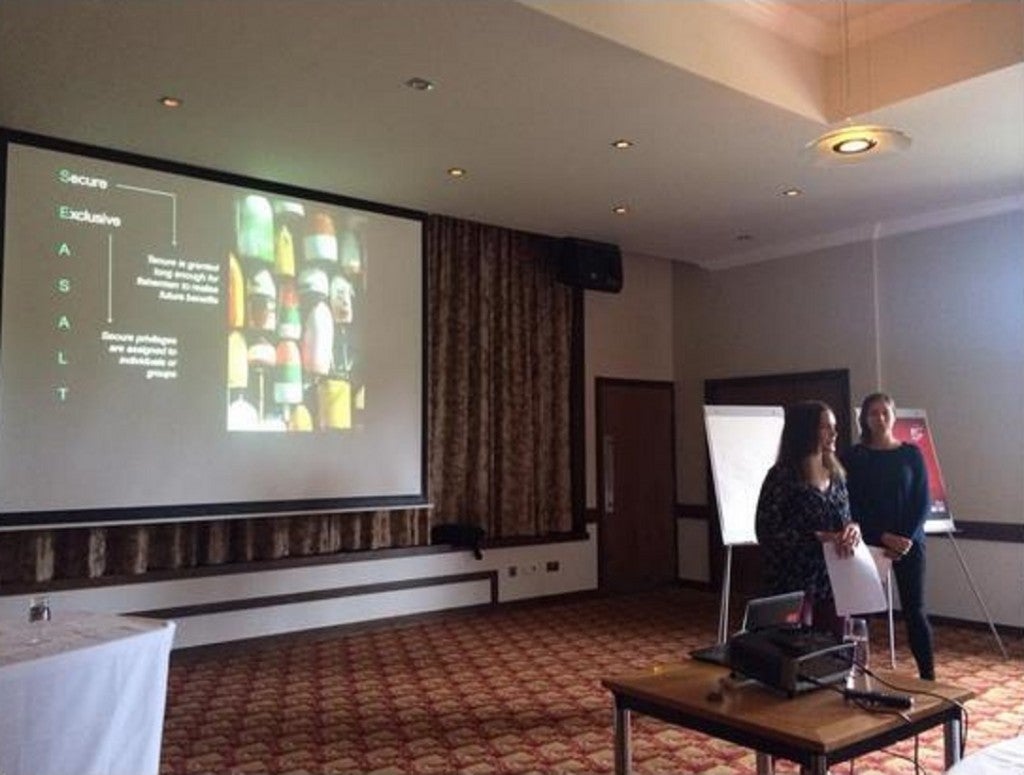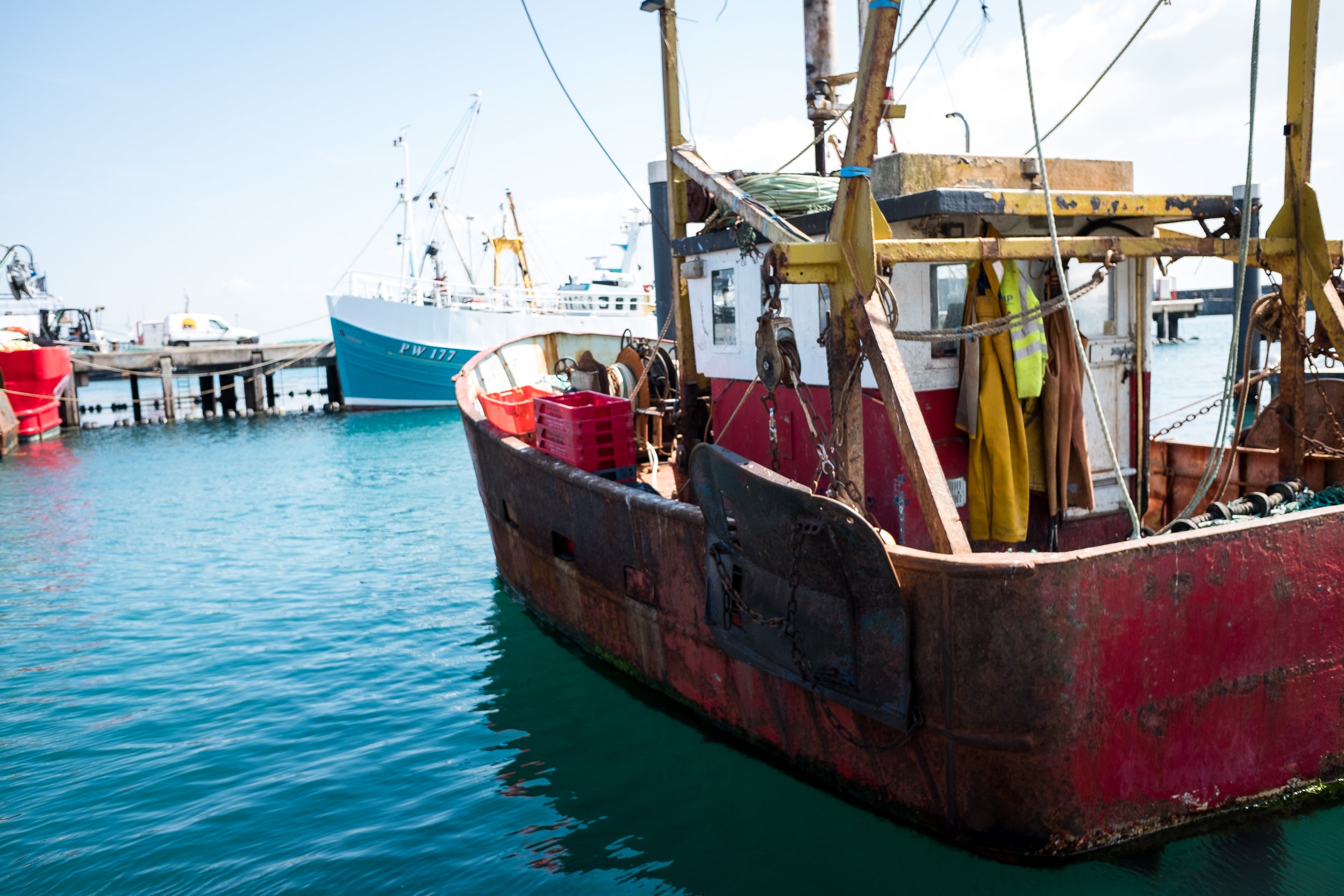Collaboration for Change: Scottish fisheries management in action

This is a pivotal time for Scottish fisheries. With the challenges of implementing the European Union’s ambitious Common Fisheries Policy (CFP) coupled with the recent Scottish Government consultation with fishermen and other stakeholders on the future of Scottish quota management, collaboration is essential. This government consultation is an opportunity for change and for fishermen, industry representatives and others to make their views heard. Creating solidarity around key principles is a great way to do this – and it’s even better if those views can be represented across the fleet. The Scottish Whitefish Producer’s Association (SWFPA) recognise this and hosted a workshop in Peterhead, Scotland on October 1 to help jumpstart the conversation about the future of quota management in Scotland.
EDF’s EU oceans team was invited to help facilitate and arranged for representatives from fisheries in Denmark, the United States and Canada to share their knowledge about what it means to go through a system of change. What all of these experiences have a common is that fishermen and fishing representatives must be at the heart of any process towards change. Creating platforms for working collaboratively and exchanging ideas and values can be a great way to carve through the complexity of government proposals while at the same time giving individuals an opportunity to think about what is really important to them. The workshop in Peterhead did just that. Its three main goals were to:
- Bring together fishermen and industry representatives from across all sectors of the Scottish fleet to engage in discussion about the future of Scottish quota management, including challenges and opportunities presented by the Scottish Government’s consultation.
- Help stakeholders learn about fisheries that have gone through the transition to more robust quota management systems and to share experiences, knowledge and information through an inclusive and participative discussion.
- Help develop an industry response to the Government’s consultation through development of, and agreement on, consensus points on key principles for future quota management in Scotland.

Through this experience, the hope was to create a shared understanding of the challenges and opportunities presented by the consultation as well as develop everyone’s awareness of different perspectives and values across the Scottish fleet. Greater understanding and an appreciation of diverse views is a necessary step towards strengthened engagement in any change process. Importantly, sharing knowledge and experiences from fisheries elsewhere who have gone through such a transition can be an enlightening experience for others to learn about.
Several attendees felt the workshop’s aims were very well met. Donald Anderson, a vessel owner out of Peterhead said, “I came along to this workshop because I realised it was something different – one of the best meetings I’ve attended, which was unanimous in its view for the future”.
Change is difficult. But it is even harder when stakeholders act in isolation. Collaboration, through a process of co-management, is an effective way to embark on a path towards successful fisheries transformation. This process requires genuine input from industry, government and environmental and academic groups to foster understanding, agree on goals and create legacy potential and create genuine buy-in through a bottom up approach.
EDF commends the SWFPA for taking this approach. They clearly recognise the value of collaboration and inclusivity, as well as the importance of taking time to listen and learn from others. EDF looks forward to future opportunities for collaboration both on quota management and other fisheries management issues.











